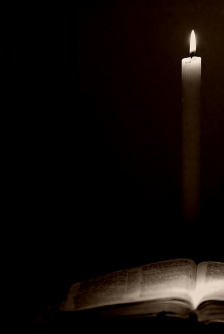July 25, 2021: Ninth Sunday after Pentecost
John 6:1-21
Jesus went to the other side of the Sea of Galilee, also called the Sea of Tiberias. A large crowd kept following him, because they saw the signs that he was doing for the sick. Jesus went up the mountain and sat down there with his disciples. Now the Passover, the festival of the Jews, was near. When he looked up and saw a large crowd coming toward him, Jesus said to Philip, “Where are we to buy bread for these people to eat?” He said this to test him, for he himself knew what he was going to do. Philip answered him, “Six months’ wages would not buy enough bread for each of them to get a little.” One of his disciples, Andrew, Simon Peter’s brother, said to him, “There is a boy here who has five barley loaves and two fish. But what are they among so many people?” Jesus said, “Make the people sit down.” Now there was a great deal of grass in the place; so they sat down, about five thousand in all. Then Jesus took the loaves, and when he had given thanks, he distributed them to those who were seated; so also the fish, as much as they wanted. When they were satisfied, he told his disciples, “Gather up the fragments left over, so that nothing may be lost.” So they gathered them up, and from the fragments of the five barley loaves, left by those who had eaten, they filled twelve baskets. When the people saw the sign that he had done, they began to say, “This is indeed the prophet who is to come into the world.”
When Jesus realized that they were about to come and take him by force to make him king, he withdrew again to the mountain by himself.
When evening came, his disciples went down to the sea, got into a boat, and started across the sea to Capernaum. It was now dark, and Jesus had not yet come to them. The sea became rough because a strong wind was blowing. When they had rowed about three or four miles, they saw Jesus walking on the sea and coming near the boat, and they were terrified. But he said to them, “It is I; do not be afraid.” Then they wanted to take him into the boat, and immediately the boat reached the land toward which they were going.
The first thing I notice when I read this passage from John is the geographic distance that is traveled, first by Jesus and then by the crowed. Jesus crosses the Sea of Galilee and then goes up a mountain and the crowd follows him. In the Scripture classes I’ve taken, I’ve learned that the description of traveling physical distance signifies that transformation is about to happen.
The practical part of me thinks, “What little foresight these people showed by not bringing any food when they followed Jesus across the Sea of Galilee!” They were hungry for the miracles he had already done healing the sick, and followed him without adequately preparing for the journey. This shows the tremendous longing they had for what Jesus had to offer.
But Jesus doesn’t chastise them for their lack of foresight in not bringing any food. He just takes stock of the situation and, realizing the crowd needed to eat, fed them by multiplying the loaves of bread and the fish which the boy in the crowd offered.
Who can blame the crowd for following Jesus? In the chapter previous to this one, he had healed the invalid who couldn’t walk for 38 years. They were amazed at what he could do, and no doubt wanted to be healed of whatever infirmities they carried. They trusted he would take care of them, and he did.
In my own life, I can think of times I acted impulsively, and yet God showed up for me. Maybe things didn’t turn out in an optimal way (because of my lack of foresight) but I still knew God was with me and that God cared for me.
Just as the crowd followed Jesus because of the wonderful things he had done, we too follow Jesus, hoping that we will be healed. But instead of performing the miracle of transforming 5 loaves and 2 fish into enough to feed five thousand people, Jesus performs the miracle of transforming us!
In our lives as disciples of Jesus, we become more caring and less selfish individuals. We learn to make others’ needs as important as our own. We think in terms of “we” and “us” instead of “I” and “me”. Little by little, Jesus molds us into the people we are called to be. What greater miracle is there than that?
